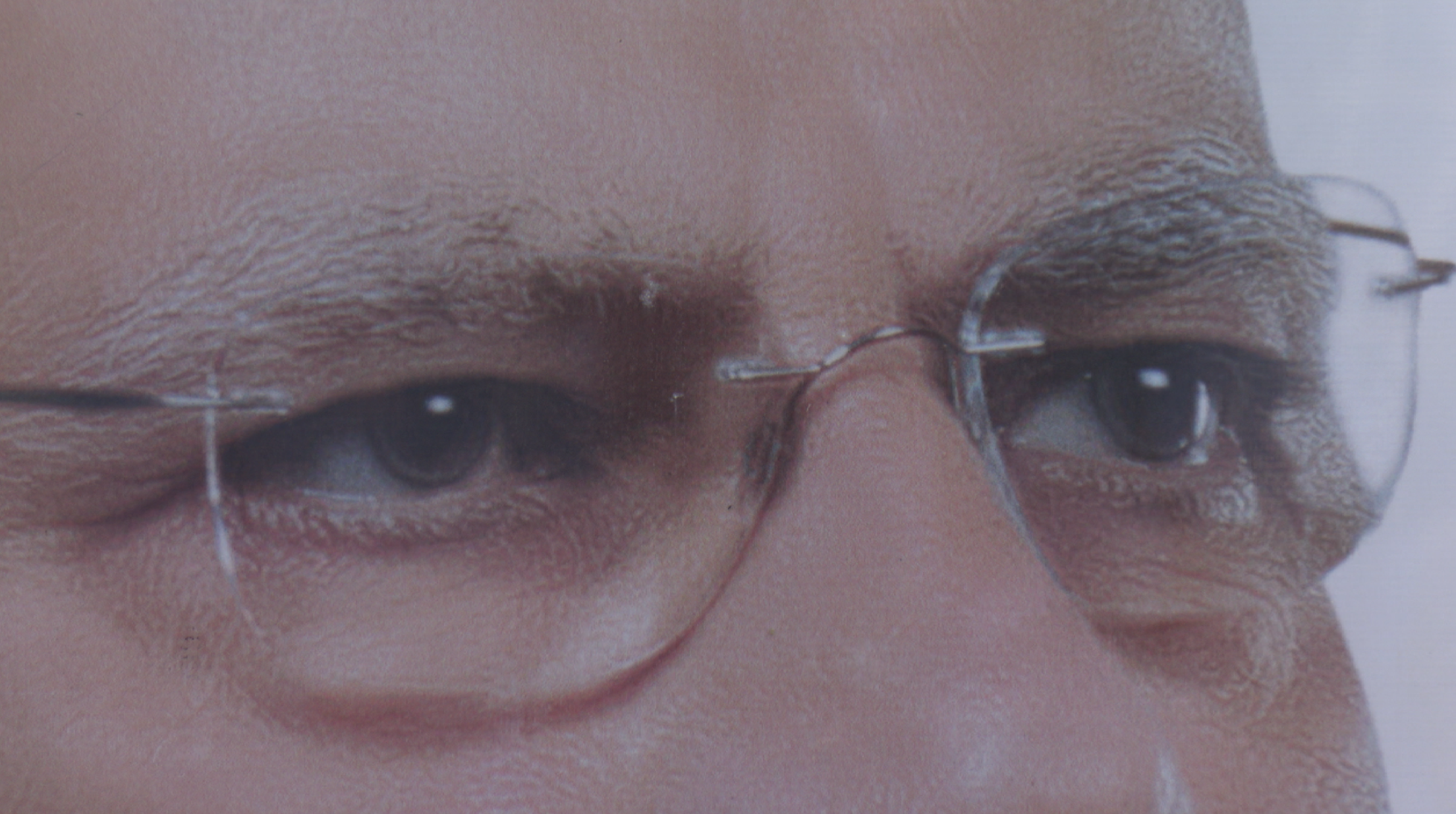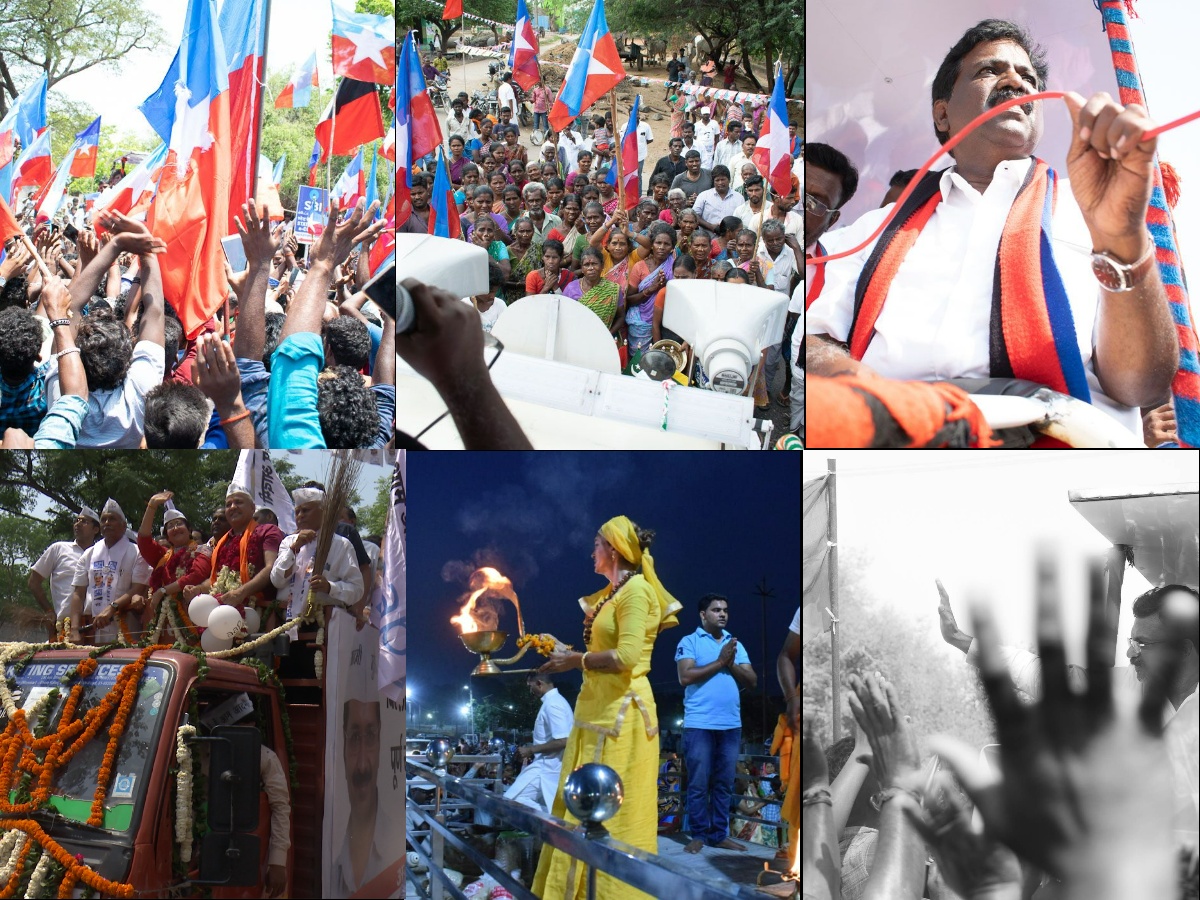
February 4, 10.00 - 13.00 (CET)/14.30 - 17.30 PM (IST)
In 2019, ICAS:MP commissioned a series of photo essays and video diaries on the Indian general elections scheduled to take place that summer. Elections are routinely celebrated as proof of democracy’s triumphant and astonishing endurance in India, and billed as the “biggest and most complex electoral exercise” in the “world’s largest democracy.” Our aim was to go beyond the hype: to visually document election campaigns across different Indian states and capture some of the rhythms and rituals, sounds and sights of electoral democracy in action. An additional and central focus of the visual diaries project was to look at the use of media (print, TV, audio-visual and social media) across electoral campaigns, and their deployment by the different political parties.
Researchers had an open-ended brief to choose any campaign in any state that they were familiar with, and follow the candidate over an extended period on the campaign trail. Five photo essays and six videos resulted, that covered campaigns across the states of Uttar Pradesh, Bihar, Assam, West Bengal, Tamil Nadu, Jharkhand, Himachal Pradesh and Delhi. From the choices made by the individual researchers, a fascinating pattern emerged of campaigns that exemplified the electoral journeys of various kinds of political outsiders: those who represented marginalized identities (gender, caste, tribe) and brand-new or minority political parties; those whose electoral fates were insecure and tenuous. In an election dominated by the financial and political might of the incumbent Bharatiya Janata Party (BJP) under the leadership of prime minister Narendra Modi, many researchers chose to focus on opposition campaigns. Their portraits of Indian elections had a specifically embattled edge and intensity, as a contest not just over the choice of parliamentary representatives, but the future of democracy itself.
Three years later, the visual diaries of Indian elections are ready for public presentation and reflection. The long gap between their production in 2019 and public exhibition in 2022 brings a whole new layer and meaning to their value as documents of democracy. Instead of current events snapshots, these are now retrospective reflections on the lineages of our troubled present. They track the crooked line that connects the norm of democratic elections to the supposed exception of authoritarian populism and Hindu supremacist politics. Instead of a celebration of India’s “festival of democracy,” they offer a more ambivalent and more pessimistic appraisal of electoral democracy’s limits and shadows.


Diarists
Michael Collins
Michael Collins is a Postdoctoral Fellow and Researcher who teaches at the University of Göttingen.
Karthikeyan Damodaran
Karthikeyan Damodaran is a researcher and teaches at CeMIS at the University of Göttingen.
Sarthak Bagchi
Sarthak Bagchi is an Assistant Professor at the School of Arts and Sciences, Ahmedabad University. He teaches courses on Democracy, Indian Political Processes and India's democratic transformation.
Rajan Pandey
Rajan Pandey is a freelance journalist associated with the survey agency People’s Pulse.
Avijit Mukul Kishore
Avijit Mukul Kishore is a filmmaker and cinematographer based in Mumbai. He works primarily in documentary and inter-disciplinary moving-image practice.
Subasri Krishnan
Subasri Krishnan is a filmmaker, and heads the Media Lab at the Indian Institute for Human Settlement (IIHS) in Bengaluru.
Lalit Vachani
Lalit Vachani is a filmmaker and researcher and teaches at CeMIS at the University of Göttingen.
Kasturi Basu and Dwaipayan Banerjee
Kasturi Basu and Dwaipayan Banerjee are documentary filmmakers and activists based in Kolkata, founder members of the People's Film Collective and co-organisers of the Kolkata People's Film Festival.
Nakul Sawhney is a documentary filmmaker and founder of Chalchitra Abhiyan, a media collective that trains local people from marginalised communities in video technology.
Neha Dixit is an award-winning freelance Indian journalist covering politics, gender and social justice and is visiting faculty at Ashoka University.
Discussants
Ruchir Joshi
Ruchir Joshi is a film-maker and writer based in Calcutta.
Ritajyoti Bandyopadhyay
Ritajyoti Bandyopadhyay teaches history and political economy at IISER Mohali, India. Currently, he is a guest professor at CeMIS.
Srirupa Roy
Srirupa Roy is professor and Chair of State and Democracy at the Centre for Modern Indian Studies (CeMIS), University of Göttingen.
The Visual Diaries project was commissioned and supported by ICAS:MP, an initiative of the Federal Ministry for Education and Research, Germany.
